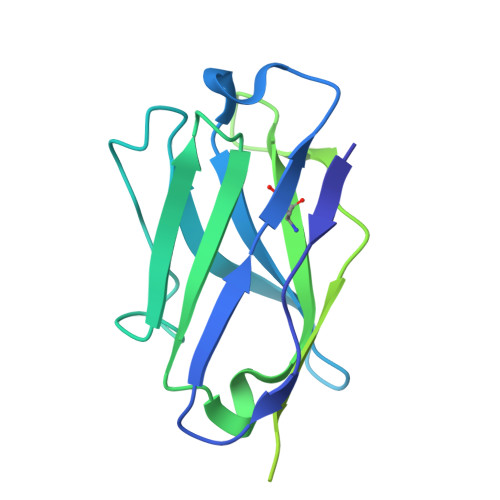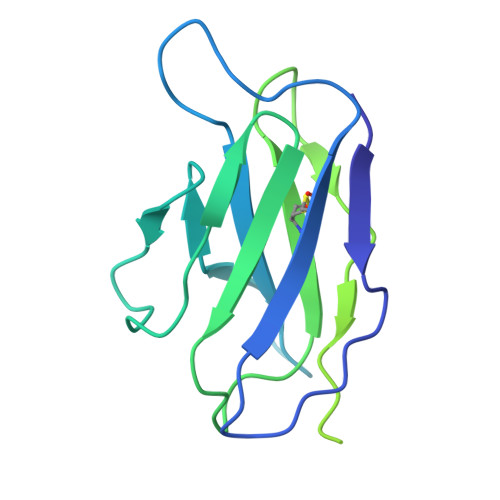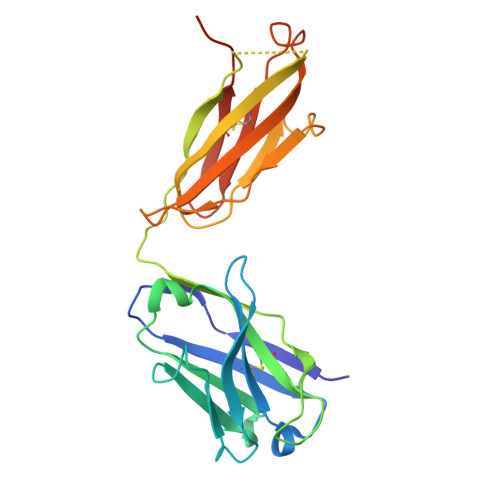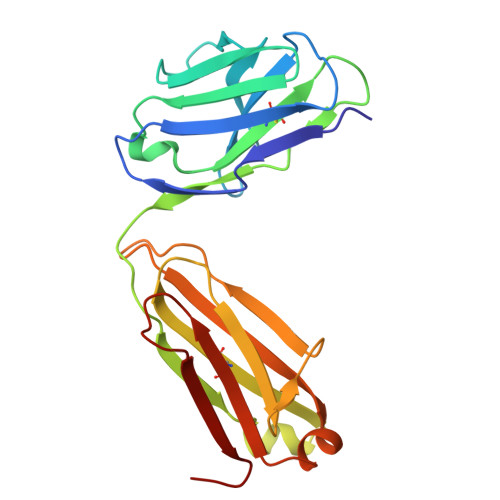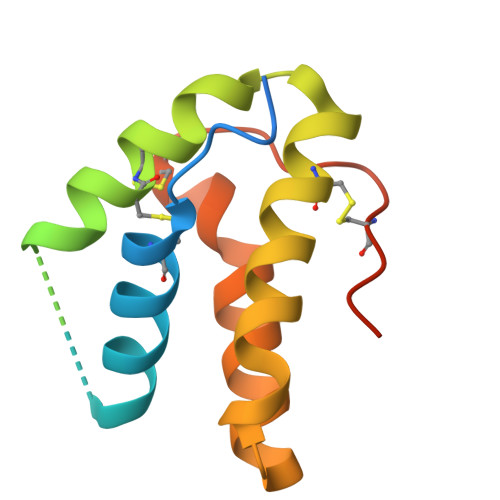Germline-encoded recognition of peanut underlies development of convergent antibodies in humans.
Marini-Rapoport, O., Andrieux, L., Keswani, T., Zong, G., Duchen, D., Yaari, G., Min, J., Lytle, I.R., Rosenberg, A.F., Fucile, C., Kobie, J.J., Piepenbrink, M.S., Sun, T., Martin, V.M., Yuan, Q., Shreffler, W.G., Seppo, A.E., Jarvinen, K.M., Loeffler, J.R., Ward, A.B., Kleinstein, S.H., Pedersen, L.C., Fernandez-Quintero, M.L., Mueller, G.A., Patil, S.U.(2025) Sci Transl Med 17: eadw4148-eadw4148
- PubMed: 40498852
- DOI: https://doi.org/10.1126/scitranslmed.adw4148
- Primary Citation of Related Structures:
9CMC - PubMed Abstract:
Humans develop immunoglobulin G (IgG) antibodies to the foods they consume. In the context of food allergy, allergen-specific IgG antibodies can sequentially class-switch to pathogenic IgE. However, the mechanism underlying the antigenicity of food proteins remains uncharacterized. Here, we identified convergent antibodies arising from different antibody gene rearrangements that bind to the immunodominant peanut allergen Ara h 2 and characterized allelic and junctional constraints on germline antibody specificity. Structurally, we found similar epitope-paratope interactions across multiple gene rearrangements. We demonstrate that these germline-encoded epitope-specific convergent antibodies to peanut occur commonly in the population because of the worldwide prevalence of the relevant gene rearrangements, allelic independence, and junctional malleability. As a result, serum IgG to this public epitope is prevalent among diverse cohorts of nonallergic peanut-consuming infants and peanut-allergic children and adults. This work demonstrates that IgG recognition of dietary antigens can be intrinsically programmed by the germline antibody repertoire.
Organizational Affiliation:
Center for Immunology and Inflammatory Diseases, Division of Rheumatology, Allergy, and Immunology, Massachusetts General Hospital, Boston, MA 02124, USA.








